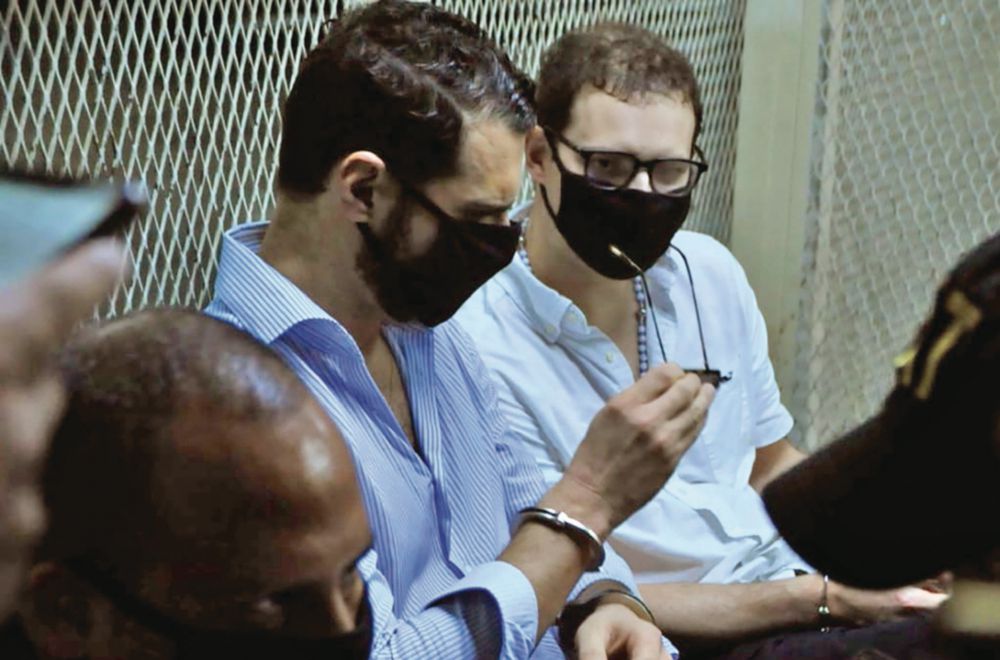Swiss media report fingers Martinellis in bribery expose

Panama is one of the emerging countries of Central America. Since 2010, the country has registered economic growth between 3.7% and 11.3%. Skyscrapers now dominate the skyline of the capital city on the Pacific coast says an article published in Tages-Anzeiger, in Zurich, Switzerland
But that rapid growth has its counterpart. The existing infrastructure was unable to keep up. To prevent the imminent collapse of traffic, Panama invested in a new subway: the construction of the first two lines of the Metro cost 3.3 billion euros. Construction started in 2010, and the second section was opened in April of last year.
The billionaire contract was awarded to the Spanish construction company Fomento de Construcciones y Contratas (FCC) , the Brazilian group Odebrecht and the French Alstom Group, which also operates in Switzerland with its transport division.
According to documents to which the newspaper SonntagsZeitung had access: 82 million euros were paid in bribes, through a Swiss bank, to obtain the contract. This is the result of the ruling of the Federal Criminal Court, in mid-May.
According to the decision, the financial intermediary involved refuses to release the information from Swiss bank accounts to prosecutors in Madrid. The judge in Bellinzona, however, ruled that it was up to the judge in Spain to decide whether the documents show a relevant criminal connection.
The corruption scandal over the construction of the Metro has been widely reported in the Spanish media, but so far, the case has gone unnoticed in Switzerland. The construction company FCC is following an offensive in its information policy towards the Spanish newspaper El País , and also towards the prosecutor investigating the case. The company, which most recently had a turnover of 5.5 billion euros, does not deny the corruption charge.
But, the company, which has its headquarters in Barcelona, turned the table and claims that it has been a victim. Mauricio Cort , a Panama City attorney, and consultant, who was hired by the FCC, is responsible for the illegal corrupt payments. His mission: to support the company in its proposal for the billionaire contract.
According to an internal investigation, it turned out that Cort has sent the company 38 invoices for a total of 82 million euros, for which, however, there was no work done..
The flow
To disguise the flow of bribes, Swiss money was channeled by Banca Privada d’Andorra, in the small state of the same name. From there, they were sent to officials in Panama.
The investigation in Andorra revealed that the accounts were not only used to pay the Metro bribes, but for other FCC contracts in Latin American countries, Cort transferred a total of 434 million euros to Nicaragua, El Salvador, and Costa Rica.
The money also flowed like this in the case of corruption of the Panama Metro and reached the accounts of decision makers in the allocation of contracts.
According to statements by an FCC representative to the Madrid prosecutors office, part of the bribe money went to a former president of the country. Ricardo Martinelli , who governed from 2009 to 2014, ana is already being investigated for corruption in another case.
According to Panamanian media, the children of Martinelli, Ricardo and Luis Enrique , also benefited from bribes. Several million were deposited with Pictet and Lombard Odier , a Geneva-based bank, and in an account with the private bank Notenstein La Roche, which was later integrated into the Vontobel Group.
The bribes were allegedly paid by the Brazilian construction company Odebrecht. To hide the origin of the funds, the accounts were opened by companies based in the Bahamas.
In fact, the processes now conducted by the Spanish prosecution are part of an investigation into Rodrigo Tacla , a former lawyer for the Odebrecht company. Investigators who followed the money in this case almost always ended up in Swiss private banks.
Bribes paid by Odebrecht have been a matter of concern for the Swiss Attorney General’s Office since 2015, when it initiated proceedings against the company, for money laundering and bribery payments. In the course of the investigation, another 60 criminal investigations were initiated and 620 million Swiss francs were frozen.
The Swiss Attorney General’s office also acted against two banks: the PKB Privatbank , in Ticino, and J. Safra Sarasin . J. Safra Sarasin recently confirmed that the Swiss Attorney General’s Office opened an investigation against him. The financial institution is accused of organizational deficiencies. The entity failed to prevent bribery of foreign public officials and to avoid money laundering.
Investigations are ongoing, but for officials at the bank, this is a matter of the past. At a press conference held by J. Safra Sarasin March, Jürg Haller , chairman of the board, said: “these are inherited responsibilities, “today we have compliance risks under control.”





